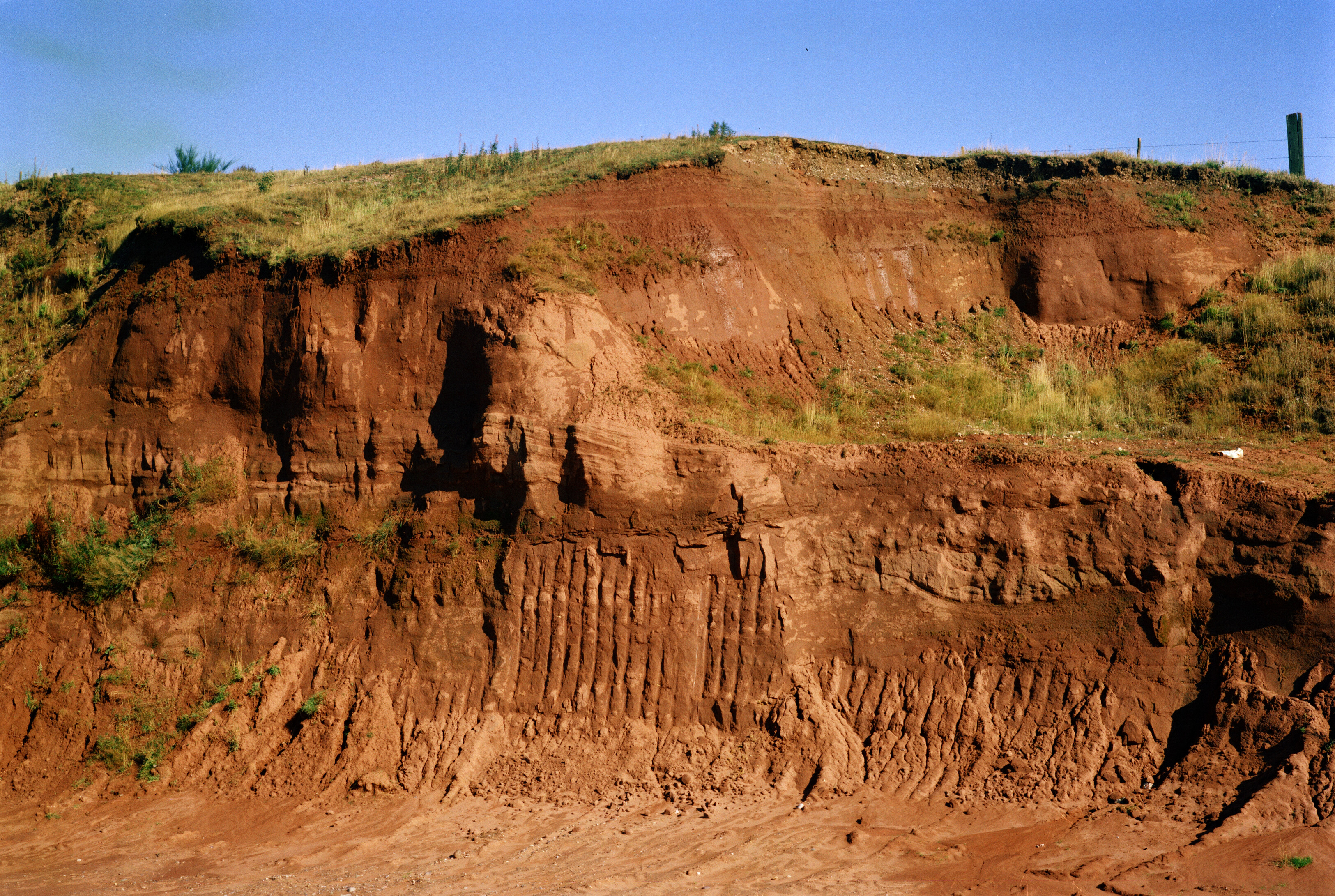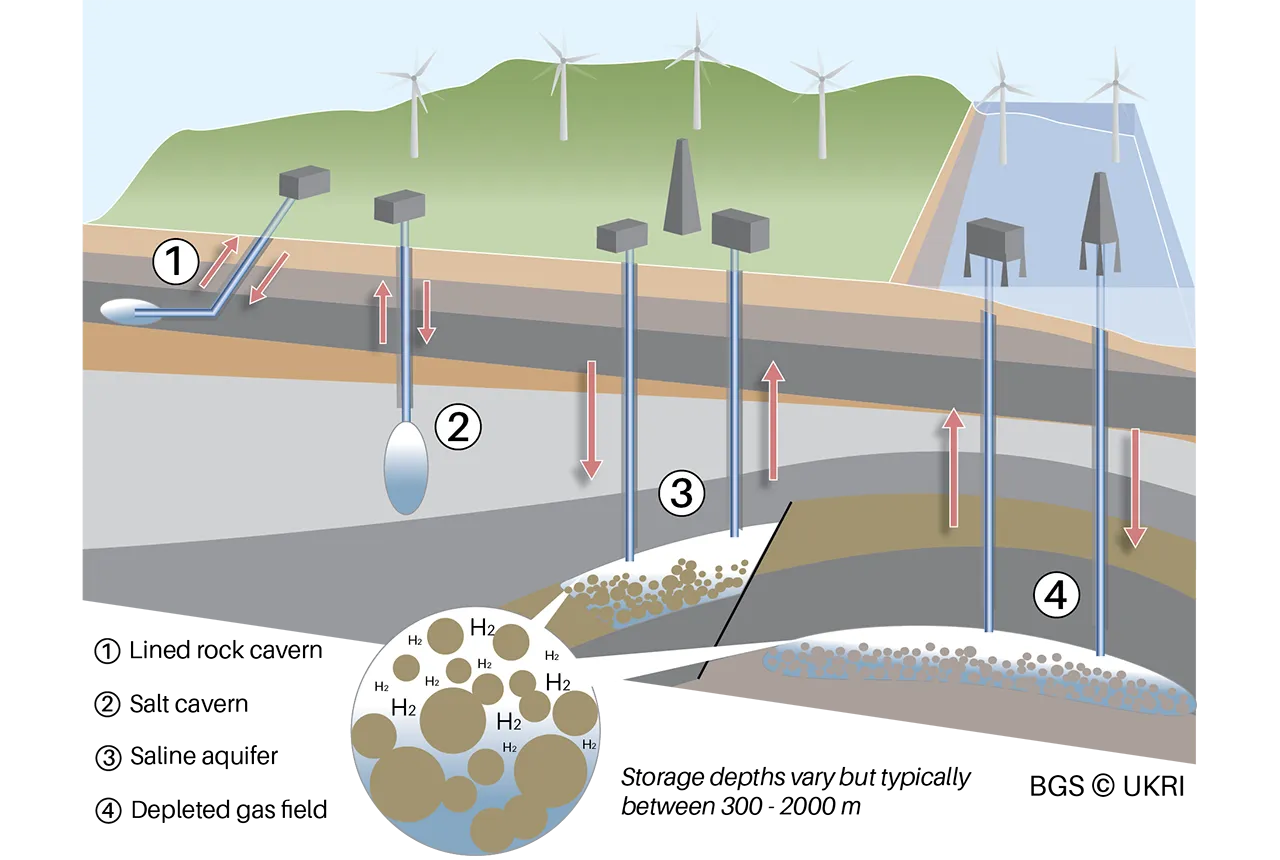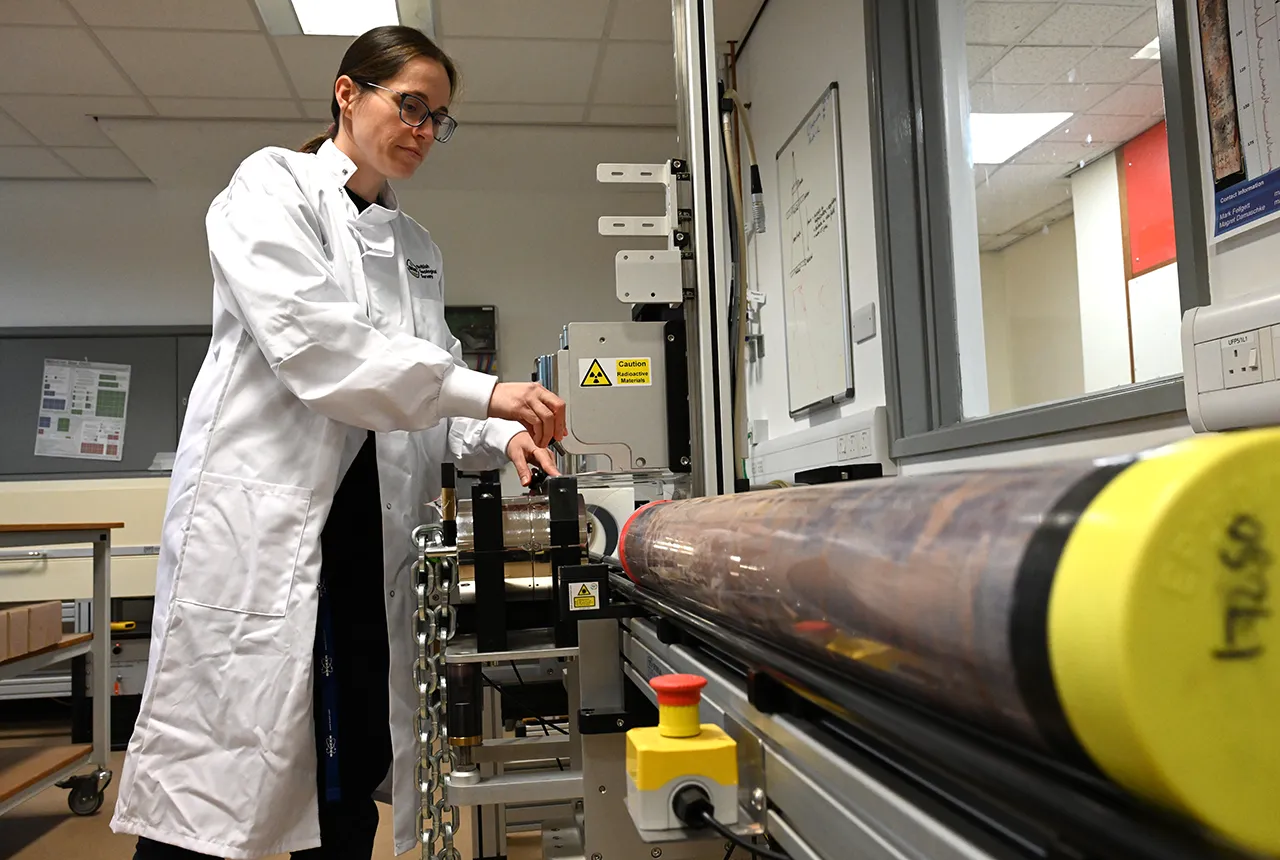Funding awarded for study on hydrogen storage potential in the East Midlands
A new study has been awarded funding to explore the underground hydrogen storage potential in the East Midlands.
19/08/2024 By BGS Press
East Midlands Storage (EMstor), a consortium led by Cadent and partnered with BGS, Star Energy Group, Net Zero Strategy and the University of Edinburgh, has been awarded discovery funding by Ofgem’s Strategic Innovation Fund to undertake a new study to evaluate geological storage potential in the East Midlands.
The EMstor study is the first of its kind in the region. It will undertake a feasibility assessment of the East Midlands’ geology to evaluate its potential to host storage technologies, allowing expansion of Cadent’s proposed 100 per cent hydrogen pipeline.
The East Midlands has numerous depleted oil reservoirs, which may have potential to store hydrogen. The study will characterise the potential geological reservoir to establish if it is suitable for hydrogen storage at scale in the local area.
It’s such exciting news that this funding bid for our EMstor study has been a success. This evaluation could potentially lay the foundations for a hydrogen storage demonstration project in the area through subsequent funding rounds, which could be game changing for the hydrogen economy in the region and will enable a more rapid decarbonisation of industry and power generators that want to switch to hydrogen. Consideration of using disused oil reservoirs for storing hydrogen is a new frontier for the industry and could have far-reaching benefits if it’s shown to be possible through this work.
Sally Brewis, head of regional development at Cadent.
The natural geology of the East Midlands will play an important role in supporting the use of hydrogen in the region. Storing hydrogen gives flexibility to the energy system, allowing excess hydrogen to be stored for use during periods when demand exceeds supply. In this project, BGS will build on its extensive laboratory and mapping programmes to help identify areas of the underground geology that may represent future exploration targets for hydrogen storage in bedrock.
Edward Hough, research lead in underground energy storage at BGS.
Cadent
Cadent is the UK’s largest gas distribution network with a 200-year legacy. We are in a unique position to build on strong foundations whilst encouraging the curiosity to think differently and the courage to embrace change. Day to day we continue to operate, maintain and innovate the UK’s largest gas network, transporting gas safely and protecting people in an emergency. Our skilled engineers and specialists remain committed to the communities we serve, working day and night to ensure gas reaches 11 million homes from Cumbria to north London and the Welsh borders to East Anglia, to keep your energy flowing.
Future of Gas
Here at Cadent we support the Government’s plans to reach net zero by 2050. That means we’re backing low-carbon alternatives to natural gas for the future. We know people love the controllability of gas and, with our network already in place, it makes sense to switch to the lower-carbon alternative offered by both biomethane and hydrogen, which we believe can keep homes and businesses warm for generations to come.
Cadent manages the national gas emergency service free phone line on behalf of the gas industry – 0800 111 999*
Cadent Gas Ltd is owned by a consortium of global investors.
*All calls are recorded and may be monitored.
Relative topics
Related news

Funding awarded to UK/Canadian critical mineral research projects
08/07/2025
BGS is part of a groundbreaking science partnership aiming to improve critical minerals mining and supply chains.

Goldilocks zones: ‘geological super regions’ set to drive annual £40 billion investment in jobs and economic growth
10/06/2025
Eight UK regions identified as ‘just right’ in terms of geological conditions to drive the country’s net zero energy ambitions.

New interactive map viewer reveals growing capacity and rare earth element content of UK wind farms
16/05/2025
BGS’s new tool highlights the development of wind energy installations over time, along with their magnet and rare earth content.

Latest mineral production statistics for 2019 to 2023 released
28/04/2025
More than 70 mineral commodities have been captured in the newly published volume of World Mineral Production.

Making the case for underground hydrogen storage in the UK
03/04/2025
A new BGS science briefing note focuses on the potential of hydrogen storage to support the UK energy transition.

Exploring Scotland’s hidden energy potential with geology and geophysics: fieldwork in the Cairngorms
31/03/2025
BUFI student Innes Campbell discusses his research on Scotland’s radiothermal granites and how a fieldtrip with BGS helped further explore the subject.

Future projections for mineral demand highlight vulnerabilities in UK supply chain
13/03/2025
New Government-commissioned studies reveal that the UK may require as much as 40 per cent of the global lithium supply to meet anticipated demand by 2030.

Could underground disposal of carbon dioxide help to reduce India’s emissions?
28/01/2025
BGS geologists have partnered with research institutes in India to explore the potential for carbon capture and storage, with an emphasis on storage.

Prehistoric power: 250-million-year-old rocks could contain secrets to net zero future
05/12/2024
BGS has completed a comprehensive scan of Mercia Mudstone rocks that could hold geological secrets of the UK’s past and provide a boost for net zero.

The challenge of assessing the UK economy’s dependence on mineral supply
28/11/2024
Critical, essential, or just plain important? Dr Gavin Mudd, director of the Critical Minerals Intelligence Centre, discusses the findings and new methodology featured in the 2024 UK Criticality Assessment.

UK 2024 Criticality Assessment published
28/11/2024
The latest UK Criticality Assessment, produced by the UK Critical Minerals Intelligence Centre, shows that growing diversification brings an increasing vulnerability in terms of disruption to supply.

Criticality Assessment 2024 launch webinar
Event on 28/11/2024
A special live webinar with the team from the Critical Minerals Intelligence Centre to accompany the launch the latest UK Criticality Assessment. A recording is now available to watch online



